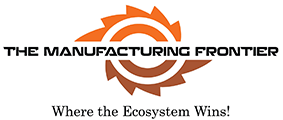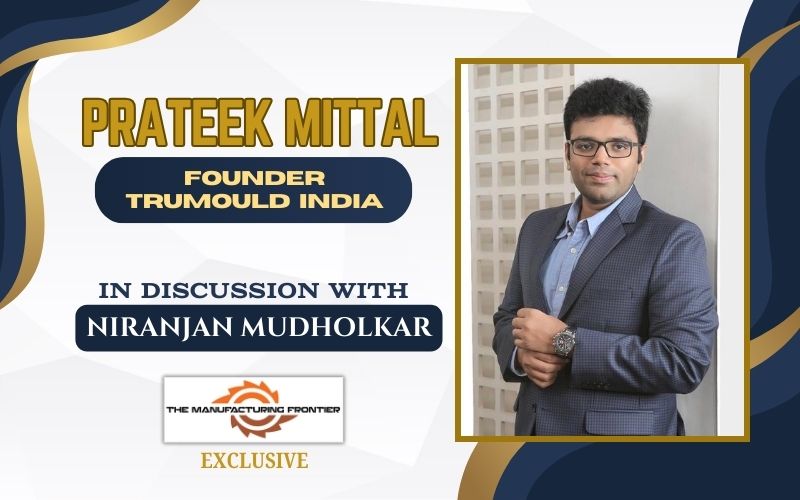“Reliability is critical, especially when working with international clients and new-age companies that demand precision and consistency. Those who prioritize advanced technology, skilled talent, and efficient operations will lead the industry in the coming years.” Prateek Mittal – Founder, Trumould India
Trumould is building a strong reputation in injection moulding and tooling. Can you share your journey in founding and scaling the company? What were the key challenges you faced?
Trumould was founded with a vision to transform the plastic procurement process, making it as seamless as buying shoes on Amazon. With my expertise in injection molding and mould making and Rishabh’s background in Silicon Valley’s tech and digital manufacturing revolution, we combined our strengths to bring efficiency and innovation to the industry.
One of our biggest breakthroughs has been reducing lead time and cost in mould making by more than half. This has significantly improved accessibility and affordability for businesses. In just two years, we have built a strong reputation and are now on the verge of closing our first round of funding.
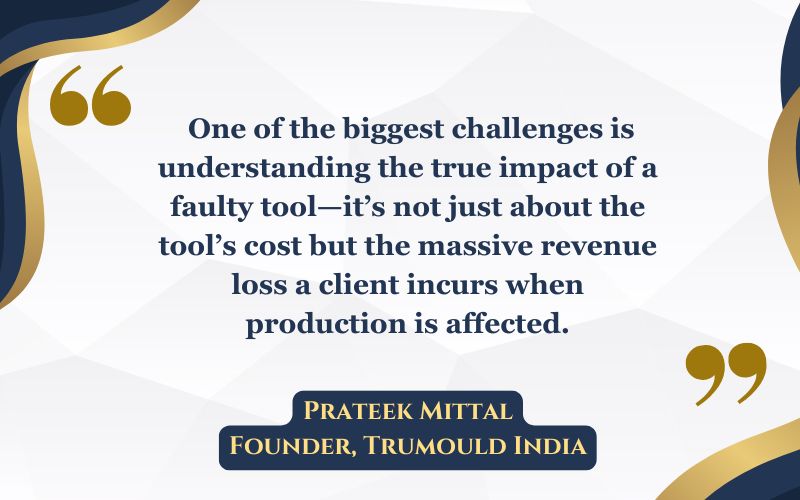
The Indian ‘tool and die’ industry is evolving rapidly. What trends do you see shaping the sector in the coming years, and how should manufacturers adapt?
The Indian ‘tool and die’ industry is experiencing double-digit growth, driven by the Make in India initiative and global companies seeking alternatives to China. This shift presents a massive opportunity for Indian manufacturers. To capitalize on this momentum, manufacturers must invest in state-of-the-art infrastructure and adopt a customer-centric approach. Reliability is critical, especially when working with international clients and new-age companies that demand precision and consistency. Those who prioritize advanced technology, skilled talent, and efficient operations will lead the industry in the coming years.
With global companies looking at India as a manufacturing hub, how competitive is the Indian tooling sector on a global scale? What should we do to bridge the existing gaps?
India’s tooling sector has significant potential but still has a long way to go to match global standards. One of the biggest challenges is understanding the true impact of a faulty tool—it’s not just about the tool’s cost but the massive revenue loss a client incurs when production is affected.
To bridge the gap, we must focus on four key areas:
● Strict adherence to timelines – Delays are unacceptable in global manufacturing.
● First-time-right quality – Rework and inconsistencies erode trust.
● Shifting from a cost-cutting mindset – Clients prioritize reliability over minor cost savings.
● Client success as a priority – Our success lies in ensuring their production runs smoothly.
By embracing these principles, India can position itself as a world-class tooling hub.
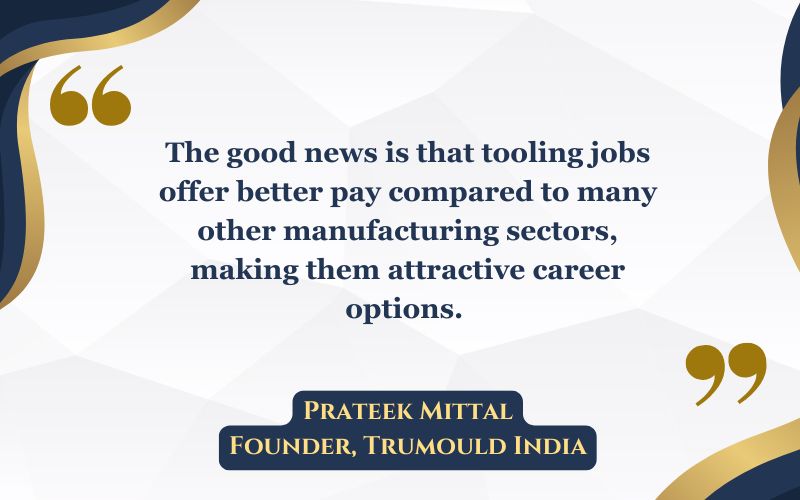
AI and automation are transforming manufacturing. How is Trumould incorporating these technologies into its mould-making processes?
At Trumould, we are pioneering the use of AI in mould-making and are proud to be the first in India to develop a software that has reduced quoting lead time from 7–15 days to just 30 seconds. This AI-powered tool analyzes parts and generates real-time quotes, continuously learning and improving over time. Eventually, it will surpass human expertise in accuracy and efficiency.
Beyond quoting, we are integrating AI into mould design, Design for Manufacturability (DFM), and other critical steps in the value chain, ensuring faster turnaround times, improved precision, and smarter decision-making. Our goal is to leverage AI to revolutionize mould-making and set new industry benchmarks.
Precision and consistency are critical in tool and die manufacturing. What steps has Trumould taken to ensure high accuracy and repeatability in its moulds?
At Trumould, we maintain complete control over the entire process—from mould design to final trials—to ensure precision and consistency. We follow a specialized, distributed manufacturing model, similar to the successful China model, where different vendors handle specific aspects of production, such as mould base, standard parts, steel procurement, core cavity machining, assembly, polishing, and trials. By ensuring quality checks at every stage, this approach reduces lead time, improves overall quality, and allows for seamless scalability, enabling us to meet the growing demands of the industry efficiently.
Skilled labor is a challenge in the tooling industry. How do you see skill development evolving in India? What initiatives does Trumould take to train and upskill its workforce?
Skilled labour is the backbone of the tooling industry, and its development is crucial for India’s manufacturing success. The good news is that tooling jobs offer better pay compared to many other manufacturing sectors, making them attractive career options. At Trumould, we are actively addressing the skill gap by collaborating with government and private institutes to train and upskill workers. By focusing on hands-on training, industry exposure, and advanced manufacturing techniques, we are building a workforce that meets global standards. Investing in skill development today will ensure a stronger, more competitive tooling industry for the future.
Trumould has worked closely with leading automotive brands. Can you share a key project or innovation where your expertise in injection molding solved a major industry challenge?
At Trumould, we have completely reimagined traditional procurement through process, hardware, and software innovations. One of our biggest breakthroughs is enabling customers to procure 100 moulds in parallel within just three months—something that was previously impossible in India and a key reason why manufacturers turned to China. By streamlining and digitizing the entire mould-making process, we have significantly reduced lead times while ensuring quality and scalability. This innovation is helping the Indian automotive sector become more self-reliant and globally competitive.
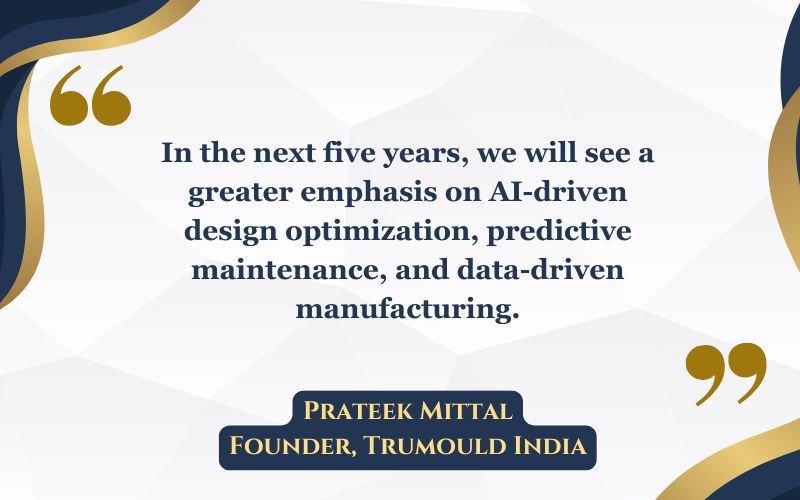
Automation, AI-driven inspection, and predictive maintenance are becoming mainstream in automotive production. How do you see these technologies shaping the future of manufacturing in India?
At Trumould, we see automation, AI-driven inspection, and predictive maintenance as game-changers for Indian manufacturing. We have integrated these technologies into our platform, enabling real-time visibility of quality reports, process tracking, and maintenance insights. This not only saves valuable man-hours but also improves predictability and repeatability, ensuring consistent quality and efficiency for our clients. As these innovations continue to evolve, they will play a crucial role in making Indian manufacturing globally competitive.
How do you see the tooling industry evolving in the next five years, and what major trends should companies prepare for?
The tooling industry is undergoing a significant transformation, driven by automation, digitalization, and sustainability. In the next five years, we will see a greater emphasis on AI-driven design optimization, predictive maintenance, and data-driven manufacturing. The shift toward electric vehicles and lightweight materials will also push tooling companies to adapt quickly. Additionally, supply chain localization will become a key priority as manufacturers seek to reduce dependencies and improve resilience. Companies that invest in advanced technologies and build agile operations will be best positioned to thrive in this evolving landscape.
